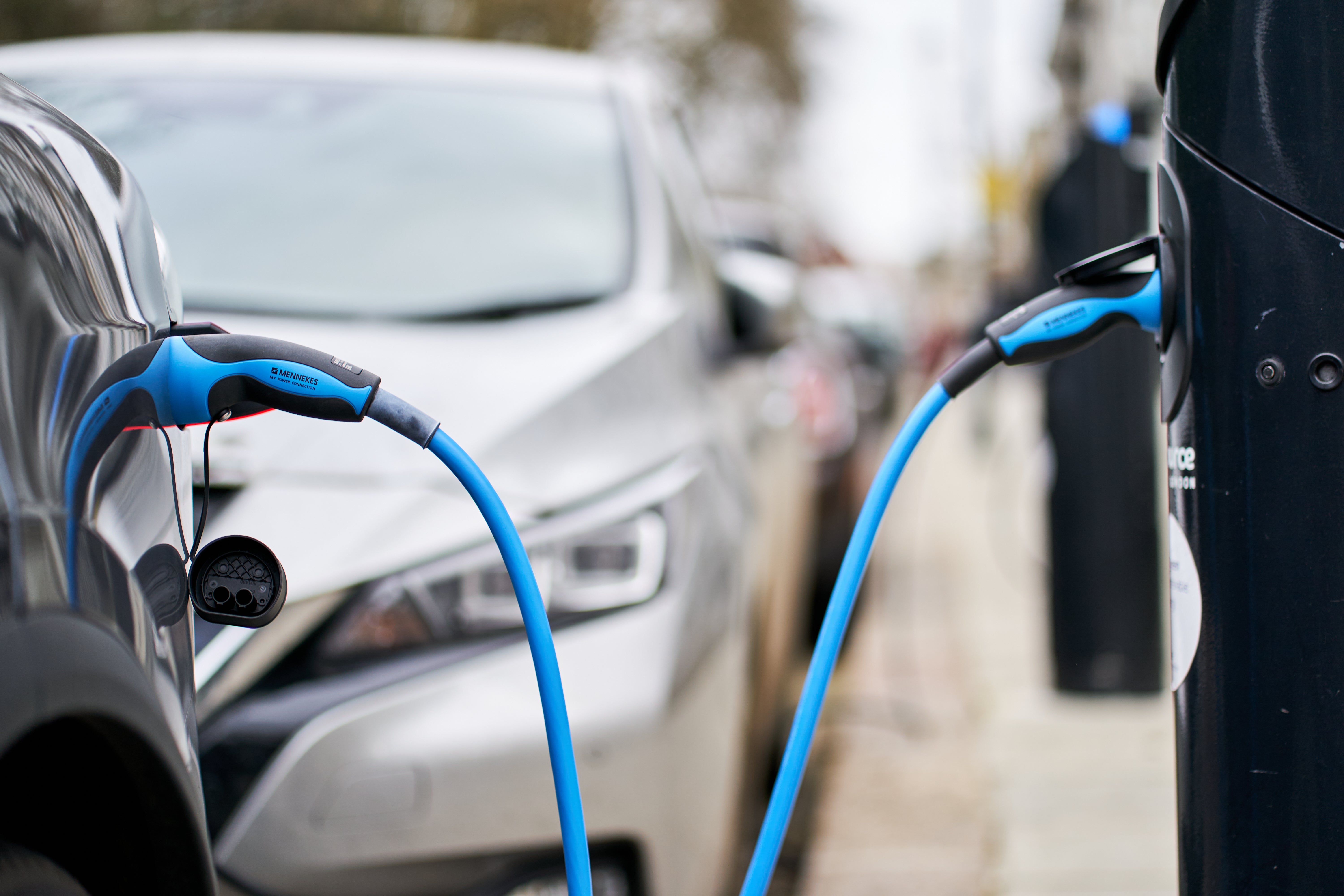Several UK gigafactories needed to secure future of car industry – report
The study also called for the installation of at least 2.3 million charging points nationwide before the end of the decade.

Your support helps us to tell the story
From reproductive rights to climate change to Big Tech, The Independent is on the ground when the story is developing. Whether it's investigating the financials of Elon Musk's pro-Trump PAC or producing our latest documentary, 'The A Word', which shines a light on the American women fighting for reproductive rights, we know how important it is to parse out the facts from the messaging.
At such a critical moment in US history, we need reporters on the ground. Your donation allows us to keep sending journalists to speak to both sides of the story.
The Independent is trusted by Americans across the entire political spectrum. And unlike many other quality news outlets, we choose not to lock Americans out of our reporting and analysis with paywalls. We believe quality journalism should be available to everyone, paid for by those who can afford it.
Your support makes all the difference.A series of factories producing electric car batteries must be built in the UK to secure the future of the country’s automotive industry, according to a new report.
The Government should announce a “binding target” of 60 gigawatt hours of battery capacity to be in place by 2030, the study commissioned by the Society of Motor Manufacturers and Traders (SMMT) said.
These gigafactories would give UK manufacturers the capability to build up to one million electric cars a year and ensure tariff-free access to “critical” markets in the European Union the plan claimed.
Now is the time to go full throttle and take bold action
The Daily Telegraph reported that Nissan will this week announce its intention to build the UK’s first gigafactory next to its plant in Sunderland.
This would produce enough batteries for 200,000 electric cars a year, according to the newspaper.
The SMMT-commissioned study, written by policy and research company Public First, also called for the installation of at least 2.3 million charging points nationwide before the end of the decade.
This is aimed at giving confidence to drivers – particularly those with no off-road parking at home – to invest in zero-emission vehicles.
The report urged the Government to launch a Build Back Better Fund to support the transformation of the car industry.
There is the potential for 40,000 new, well-paid and high-skilled jobs to be created in the “best-case scenario” of a successful transition to a zero-emissions future combined with “ambitious global trading terms”, the study concluded.
This could be a major boost to “auto heartlands” in the North East and the West Midlands, it stated.
But the document warned that the industry “risks decline” if there are not “competitive conditions”, leading to the loss of around 90,000 jobs.
The automotive sector is uniquely placed to help this Government deliver on its agenda: to level up, deliver net-zero and trade globally
Chief executive Mike Hawes speaking at the SMMT’s annual summit, said: “The next few years represent a critical period for the sector.
“The pace of technological change is accelerating and the competition more ferocious.
“If we are to secure vehicle manufacturing in this country, with all the benefits to society that it brings, decisions need to be made today.
“The automotive sector is uniquely placed to help this Government deliver on its agenda: to level up, deliver net-zero and trade globally.
“The Government has made clear its support for the sector in its negotiations with Europe, so now is the time to go full throttle and take bold action to support one of Britain’s most important industries.”
A Government spokeswoman said: “We are committed to ensuring the UK continues to be one of the best locations in the world for automotive manufacturing and are dedicated to securing gigafactories to support the auto sector’s transition to electric vehicles.
“We continue to work closely with investors and vehicle manufacturers to progress plans to mass produce batteries in the UK.
“The UK has over 23,800 public charging points including 4,450 rapid devices, one of the largest networks of rapids in Europe.
“We are working closely with local authorities to roll out the electric vehicle revolution, with £1.3 billion investment for electric vehicle infrastructure which will support drivers across the country.”